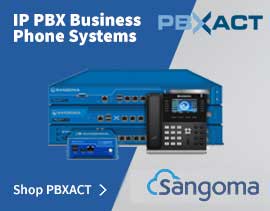Availability: Discontinued
Please note this is now discontinued, we recommend the following: Sangoma
D100
Howler Technologies Screamer Plus Transcoder Card (300 G.729 Calls)
Enable high transcoding capacity at low cost. You can choose how many
G.729 calls you need on your Screamer Card and whenever you want more,
just upgrade, no need to install new hardware. Screamer is designed to
offload the complex codec translations for highly compressed audio that
would otherwise need to be processed by your telephony platform in
software.
The Howler Screamer PCI Express card is available now and can be
ordered from our web store. It�s a low profile, � length cell processor
card that is flexible and upgradable. Howler's unique floating license
model allows you to run G.729 transcoding across multiple cards in your
network for load balancing and redundancy.
Transcoding complex codec�s like G.729 requires a substantial amount of
CPU overhead that can severely hamper the performance of your
soft-switch. Screamer completely relieves the CPU of this duty, freeing
it up to handle other tasks or complete additional call processing.
Howler Screamer decompresses G.729a (8.0kbit) into G.711 u-law or
a-law; or compresses G.711 u-law or a-law into G.729a. Its compatible
with leading 32-bit soft-switches. A windows API interface and a 64-bit
version will be made available shortly.
The Benefits
Smart Business Solutions
425 G.729 channels available
You can transcode up to 425 G.729 channels on a single Screamer PCI
card. You simple will not find a better price/performance metric in the
market.
Completely Flexible
You choose what capacity you want and you choose when you need it.
Screamer is upgradable whenever you�re ready. Buy Screamer Max for full
capacity or configure your own screamer. See plans and pricing for
details.
Floating Licenses
Our flexible licensing policy allows you to float licenses across
multiple servers, for load balancing and redundancy. You don�t have to
fix your transcoding capacity to one machine. Floating licenses allow
you to offer G.729 transcoding across your entire infrastructure on
multiple cards.
LifeTime Software Support and Maintenance
Our software fees include lifetime support and maintence, inc full online support, all upgrades and maintenance releases.
100% Satisfaction Guarantee
If you experience any issues with our products or you are not 100%
happy with your purchase � on receipt of goods we will give you an
immediate refund. We like happy customers and this is our promise to
you.
Performance
Ultimate Power
Howler Screamer� integrates into your soft-switch and VoIP applications
as easily as our highly successful Howlets product, but augments your
system with a PCI-Express acceleration card so as not to impact your
CPU when doing signal processing such as transcoding.
Howler Screamer� G.729a (Concurrent Calls)
Howler's ultra-fast G.729a codec enables you to transcode over 425
concurrent G.729/G.729a-G.711 calls when paired with the Howler
Screamer� accelerator card, enabling cost-effective transcoding of Low
Bit-Rate codecs with minimal impact on your host CPU.
Tested to over half a million simulated call minutes, and bit-accurate
with the reference ITU-T implementation, it provides robust
acceleration for your chosen soft-switch, great quality (100dB PSNR)
and is substantially more scalable than competing G.729a off-load
solutions for Asterisk, FreeSWITCH and CallWeaver.
Notably, Howler is the first to offer a fully interoperable and
indemnified G.729a solution in both software and hardware for
FreeSWITCH, coupled with its unique floating license model for
cost-effective multi-server deployments on Linux and Windows.
G.729a Howler Screamer� for Asterisk � Dual-Core AMD Opteron @ 1.8ghz, Linux
The 1.8ghz Dual-Core Opteron Asterisk system augmented with a Howler
Screamer� PCI-E card, and our G.729a codec was able to achieve 425
concurrent calls at only 133% CPU utilisation (of a possible 200% due
to the two cores), terminating to a streaming wave file of spoken
words. Voice quality of the two additional calls was excellent, with no
degradation in quality compared to the reference codec and immediate
call connection.
 Asterisk Hardware
Asterisk Hardware
 Howler Technologies G.729 Transcoder Cards
Howler Technologies G.729 Transcoder Cards
 Howler Technologies Transcoder Cards
Howler Technologies Transcoder Cards
 .
.
 Asterisk Hardware
Asterisk Hardware
 Howler Technologies G.729 Transcoder Cards
Howler Technologies G.729 Transcoder Cards
 Howler Technologies Transcoder Cards
Howler Technologies Transcoder Cards
 .
.











